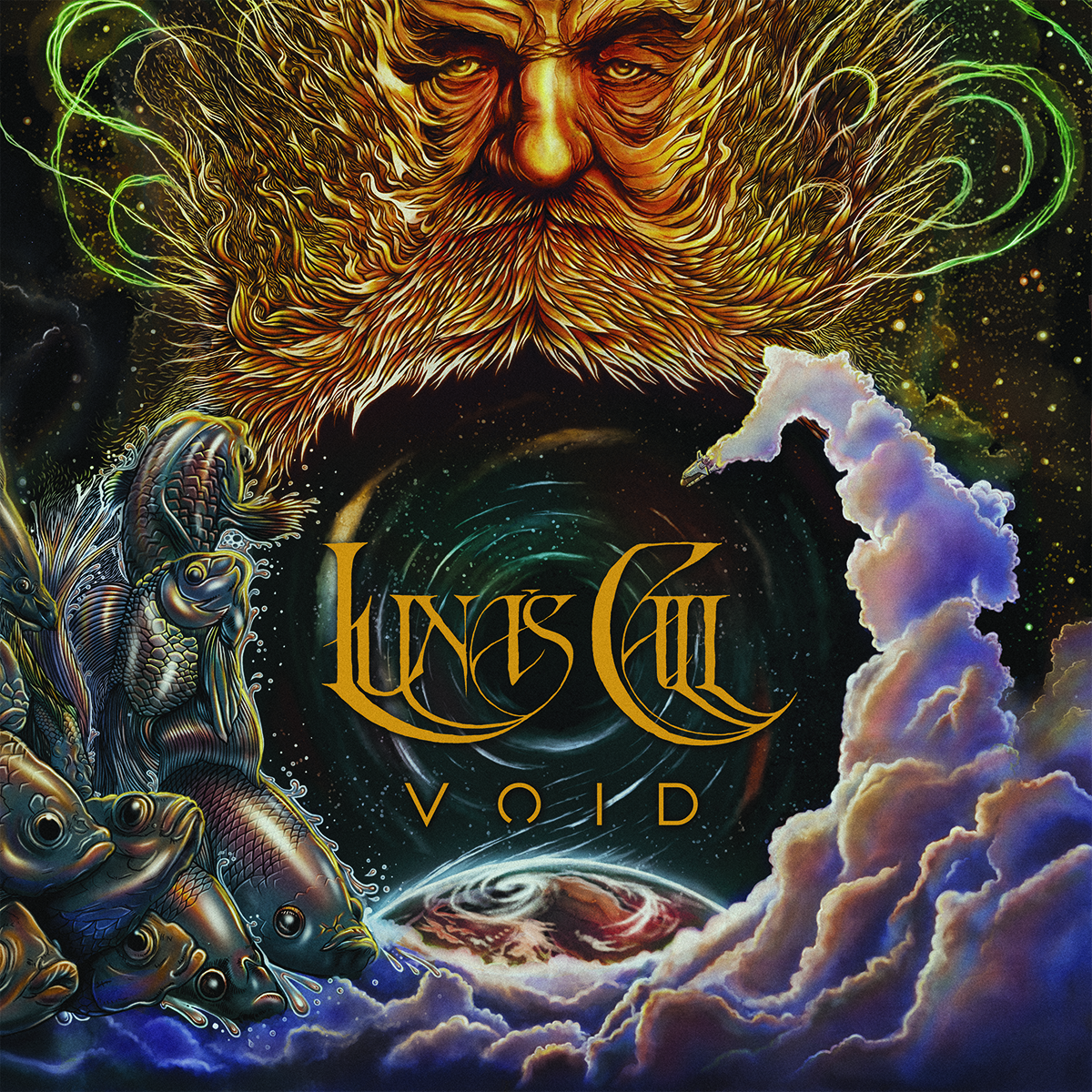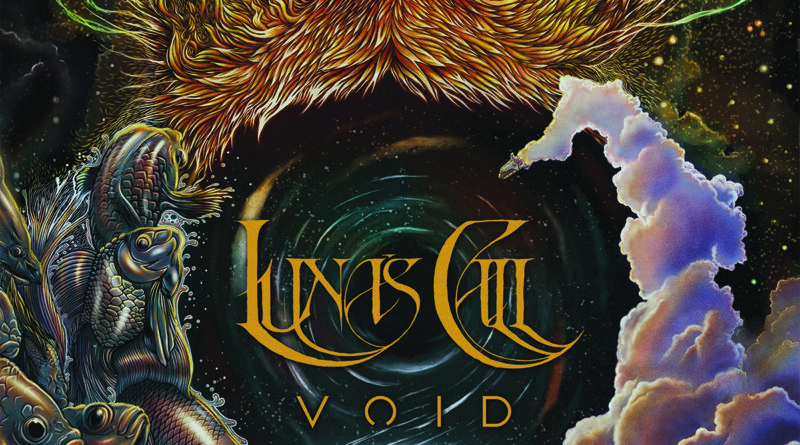ALBUM REVIEW: Void – Luna’s Call
LUNA’S CALL‘s ambitious second record Void is a complex blend of progressive and death metal, that reaches several heights, but also falls prey to being too complicated for its own good. Whilst this record does little to reinvent the progressive death metal genre that OPETH popularised in their earlier years, Void is a good addition to the discography for anyone who likes long, progressive metal. This is an album that requires a decent chunk of time investment, with one track clocking in at over 13 minutes long, whilst the record as a whole is only comprised of eight songs –which span a whopping 50 minutes!
This follow-up to 2015’s debut Divinity clearly leans into both its progressive and death metal roots, switching between blastbeats and then oddly timed drum patterns almost seamlessly – and it is certainly good to see a band described as ‘progressive death metal’ who aren’t just a prog band screaming. Speaking of the vocals, Neil Purdy and Brad Laver have clearly studied their influences well, as their vocals are perfectly pitched for the genre – absolutely brutal but not too heavy to follow. Indeed they add a lot to the mix, with backing instrumentation at some points sounding an awful lot like CHON, before their harsh growls contrast wonderfully with the slower guitar. There’s even growls over a piano piece and strings at some points, which only serves to make this album feel more interesting – how many times have you heard a beautiful violin piece followed up by an almost inhuman growl and staggering double kick?
Undoubtedly the most ambitious song on this record is the 13 minute long Solar Immolation, that goes through multiple time signature changes, and includes one of the instances of clean vocals on Void. There’s a lot of showing off on the guitar by Liam Underdown and Purdy, with a fair few ‘twiddly’ moments throughout, but overall they don’t tend to overshadow the track itself too much, with Jamie Batt’s drumming consistently moving the song forward throughout. Indeed the drums are certainly the driving force behind this record, as while some of the solos can often feel unnecessary, there is a sense of urgency to the drums when they come in – certainly anchoring the record as a piece of music rather than just a piece of musical showmanship.
Speaking of showmanship, there is certainly a fair bit of showing off by the band on this album, which is something that many progressive bands tend to fall victim to. When LUNA’S CALL do showcase their impressive musical chops it does tend to go on slightly too long, and would most likely make this a bit of a chore of a record for people hoping for a slightly more straightforward death metal album. Whilst this does add a lot of variety throughout Void, it also leaves it as a record that seems slightly uncertain of what it wants to be – when an acoustic comes in at the start of Enceladus & the Life Inside there is a sense of whether or not this is actually the same record or not. With this whole song being a much more slow-paced and acoustic track, it is impressive that the band can pull it off, but at the same time it certainly detracts from the ‘death metal’ roots that they lay claim to. Especially dedicating over five minutes to something that feels like an interlude completely detracts from the power of the record.
This is a decent follow-up, however it is not focused on its target enough, and Void suffers from all the experimentation that LUNA’S CALL attempt. It is impressive that they give it a go, however it does tend to distract from the main purpose behind the album, leaving something that meanders and is never quite certain what direction it wants to go in.
Rating: 6/10

Void is out now via self-release.
Like LUNA’S CALL on Facebook.

